- Kansas City Kansas Community College is a public, urban, open-door, and comprehensive community college committed to excellence in higher education. Through an accessible and supportive learning environment, the college mission is to provide higher education and lifelong learning to the varied communities, primarily in its service area of Wyandotte and Leavenworth counties.
School Highlights
Kansas City Kansas Community College serves 6,523 students (36% of students are full-time).
The college's student:teacher ratio of 12:1 is lower than the state community college average of 16:1.
Minority enrollment is 59% of the student body (majority Hispanic), which is more than the state average of 40%.
Quick Stats (2025)
- Enrollment: 6,523 students
- In-state tuition: $2,640
- Out-state tuition: $6,660
- Student:teacher ratio: 12:1
- Minority enrollment: 59%
- Source: Integrated Postsecondary Education Data System (IPEDS)
Top Rankings
Kansas City Kansas Community College ranks among the top 20% of public schools in Kansas for:
School Overview
The teacher population of 549 teachers has stayed relatively flat over five years.
Kansas City Kansas Community College
(KS) Community College Avg.
Carnegie Classification
Associate's Colleges: High Career & Technical-Mixed Traditional/Nontraditional
Associate's Colleges: Mixed Transfer/Career & Technical-High Nontraditional
Institution Level
At least 2 but less than 4 years
At least 2 but less than 4 years
Institution Control
Public
Public
Total Faculty
549 staff
170 staff
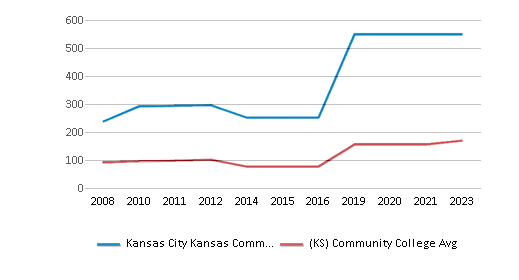
School Calendar
Student Body
The student population of Kansas City Kansas Community College has grown by 8% over five years.
The student:teacher ratio of 12:1 has increased from 9:1 over five years.
The Kansas City Kansas Community College diversity score of 0.73 is more than the state average of 0.60. The school's diversity has stayed relatively flat over five years.
Total Enrollment
6,523 students
1,908 students
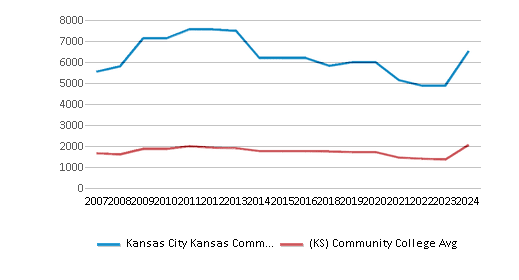
Student : Teacher Ratio
12:1
16:1
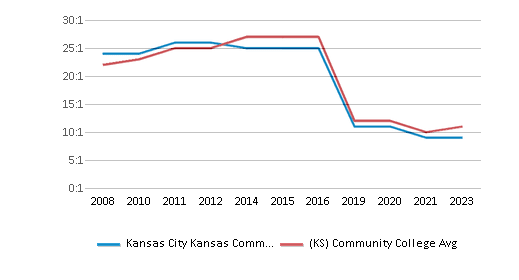
# Full-Time Students
2,367 students
606 students
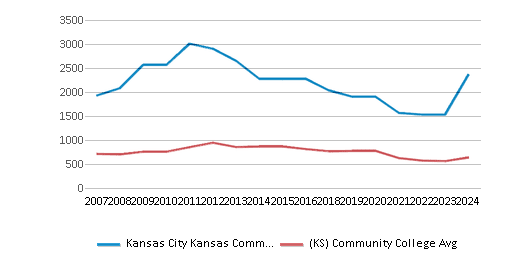
# Part-Time Students
4,156 students
1,451 students
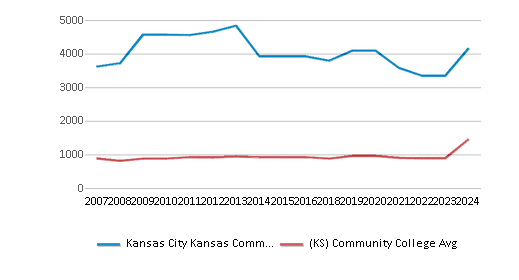
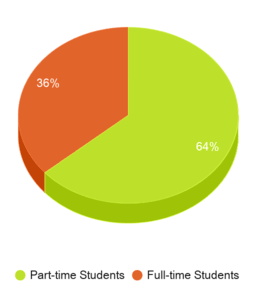
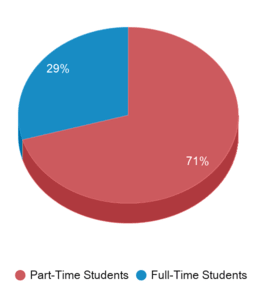
# Enrollment Undergraduate
652 students
231 students
# Full-Time Undergraduate Students
2,367 students
606 students
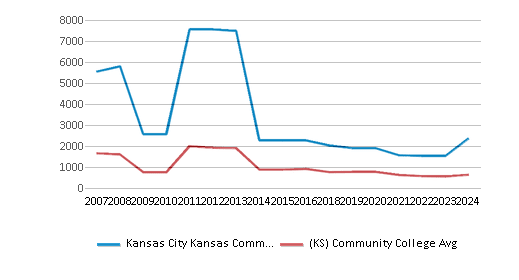
# Full-Time Graduate Students
n/a
11 students
# Part-Time Undergraduate Students
4,156 students
1,424 students
# Part-Time Graduate Students
n/a
5 students
Total Dormitory Capacity
160 students
342 students
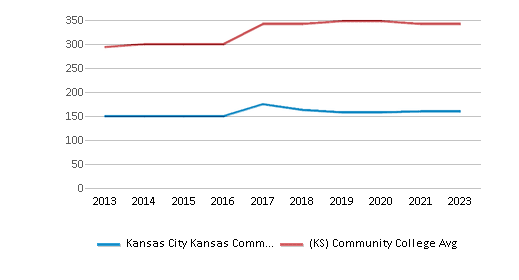
% American Indian/Alaskan
n/a
1%
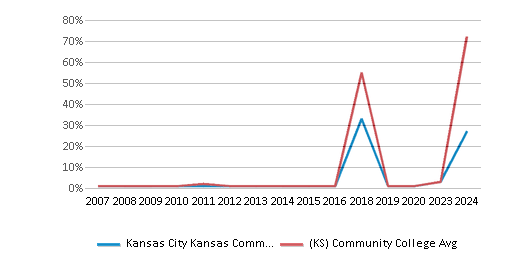
% Asian
4%
3%
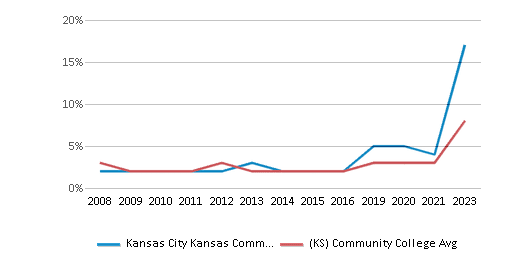
% Hispanic
26%
15%
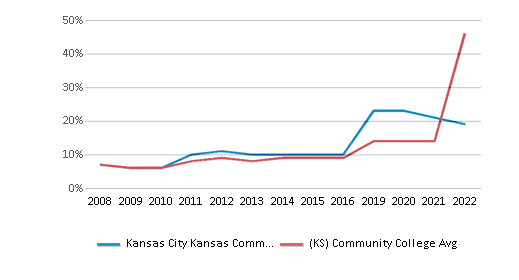
% Black
18%
8%
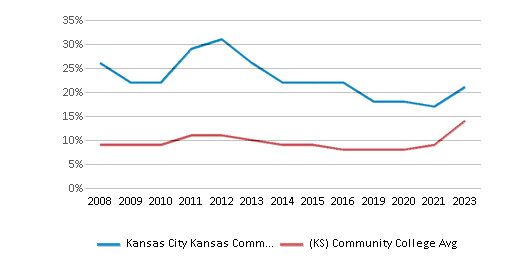
% White
41%
60%
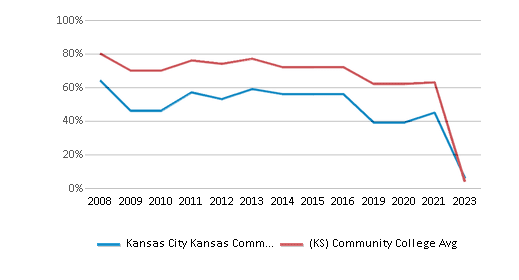
% Hawaiian
n/a
1%
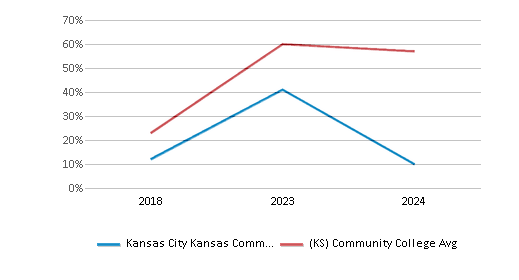
% Two or more races
5%
4%
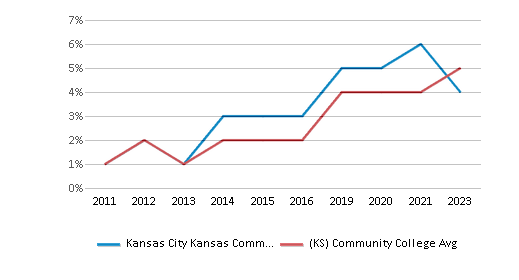
% Non Resident races
1%
2%
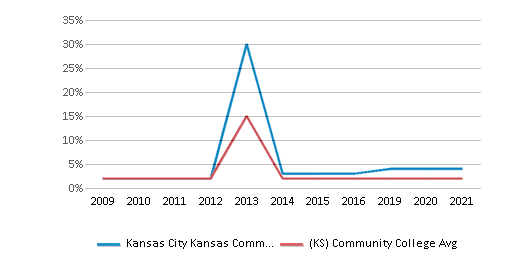
% Unknown races
3%
6%
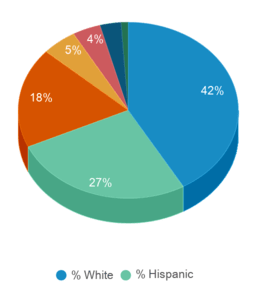
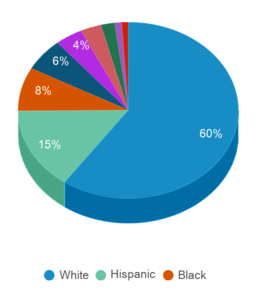
Diversity Score
0.73
0.60
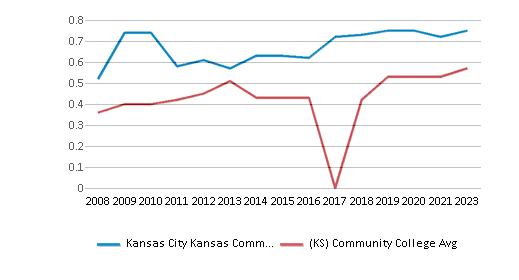
College Completion Rate (Students who graduate in less than 4 years)
0.329%
0.4101%
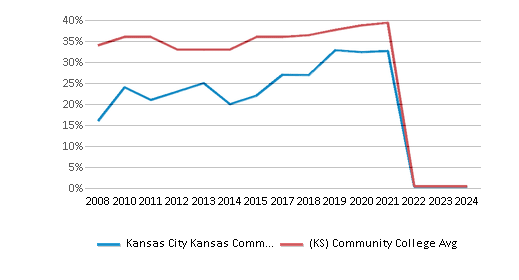
College Completion Rate (Students who graduate in 4 years or more than 4 years)
n/a
0.3056%
Average Graduate Earnings (10 Years)
$33,400
$34,000
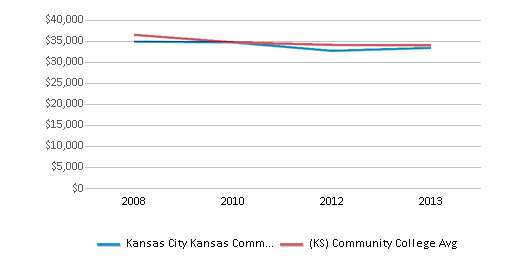
Tuition and Acceptance Rate
The public in-state tuition of $2,640 is less than the state average of $3,402. The in-state tuition has declined by 20% over four years.
The public out-state tuition of $6,660 is more than the state average of $4,296. The out-state tuition has stayed relatively flat over four years.
In-State Tuition Fees
$2,640
$3,402
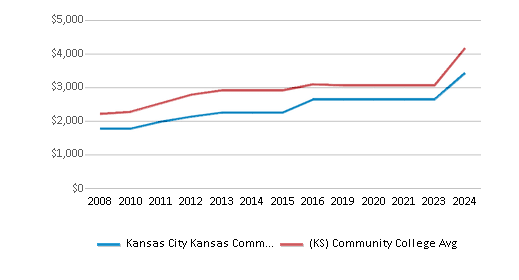
Out-State Tuition Fees
$6,660
$4,296
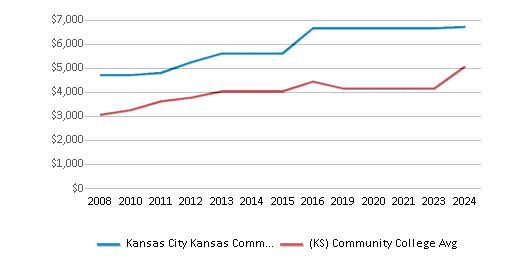
% Students Receiving Some Financial Aid
72%
90%
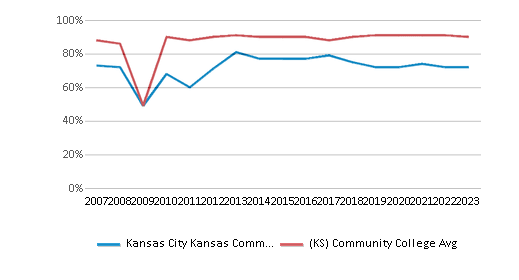
Median Debt for Graduates
$9,500
$8,892
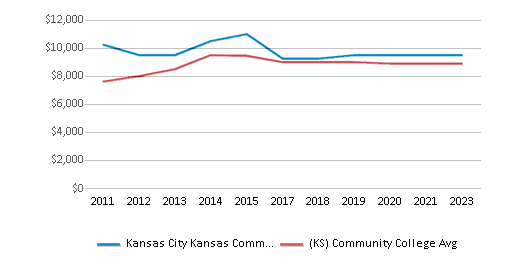
Median Debt for Dropouts
$5,432
$5,467
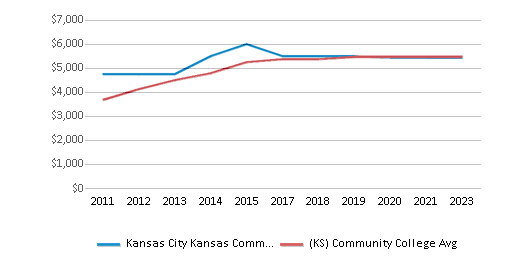
Acceptance Rate
n/a
100%
ACT Composite
n/a
21
Source: 2024 (or latest year available) Integrated Postsecondary Education Data System (IPEDS)
School Notes
- Kansas City Kansas Community College seeks to provide an educational environment that encourages a strong commitment to high academic standards that sustains and advances excellence in learning and encourages challenging, innovative, and varied programs, teaching methods, and delivery systems; enhances student intellectual and social development to the fullest extent possible; and stresses the attitudes, behaviors, responsibilities, and skills required for effective learning and citizenship in a multicultural democracy. The college provides transfer education in the liberal arts and sciences, career education in a technical or professional field, general education and support services, continuing education and developmental education. The college provides community services that offer cultural and recreational activities, provide access to college facilities, and that serve as a planning, research, and resource center to the college's varied communities. The college seeks to provide a multicultural environment that reflects and respects diversity and seeks to increase understanding and appreciation of differences. A campus environment that promotes the teaching and learning process through accessible, comfortable, safe, and well-maintained facilities.
Frequently Asked Questions
How much does Kansas City Kansas Community College cost?
Kansas City Kansas Community College's tuition is approximately $2,640 for In-State students and $6,660 for Out-State students.
What is Kansas City Kansas Community College's ranking?
Kansas City Kansas Community College ranks among the top 20% of community college in Kansas for: Diversity in US community colleges and Largest student body.
In what neighborhood is Kansas City Kansas Community College located?
Kansas City Kansas Community College is located in the Victory Hills neighborhood of Kansas City, KS.
Recent Articles

Obtaining Your Bachelor's Degree at a Community College
Explore the evolving landscape of community colleges offering bachelor's degrees, addressing affordability, accessibility, and workforce needs.

A to Z of Community College Certificates and Courses
From business and healthcare to technology and skilled trades, the article showcases the breadth of options available to students seeking to enhance their knowledge, develop new skills, or pursue career advancement.

What is a Community College?
This comprehensive guide explains what a community college is, its history, and its role in higher education. It covers the types of programs offered, differences from four-year colleges, benefits of attending, and important considerations for prospective students, providing valuable insights for those exploring educational options.











